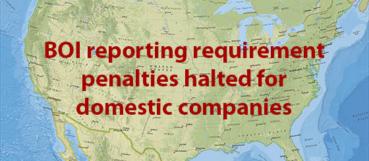Who does what in your nonprofit organization?

Large, long-established not-for-profits generally know where the duties of their staffers end and those of their board members begin. But smaller or newer organizations don’t always understand the limits of each “lane.” To avoid confusion and misunderstandings — and help ensure efficient operations — employees and board members need explicit guidelines about their roles and responsibilities.
A good start
Begin educating staffers and board members at the onboarding stage. A thorough orientation process helps them understand their place in the big picture. Provide individuals in each group with written descriptions of their responsibilities and offer specific examples that illustrate the scope of their duties.
For example, board members generally provide financial oversight and ensure resources are used responsibly to further the organization’s mission. In practical terms, this means your board should regularly review financial statements for accuracy and approve budgets, ensuring they align with your nonprofit’s strategic objectives.
Staff responsibilities vary according to their positions, of course. But in general, nonprofit employees carry out the mission with programs and projects, communicate with stakeholders, and raise funds. They might, for example, be responsible for preparing financial statements and budgets for the board, but they can’t approve them or put them into action without board input.
Reporting structure
Board members need to keep in mind that they don’t have the authority to direct staffers. Staffers are partners with board members and they report to their nonprofit’s executive director.
If, for instance, a board member wants an employee to compile a report, the request should go through the executive director. The executive director ultimately manages staff workflow and usually is aware of any competing priorities — or can communicate with the employee’s manager to assess workload. Similarly, board members with employee-related suggestions or complaints should direct them to the executive director, not the staff.
Walking in their shoes
This doesn’t mean board members should have no contact with staffers! To the contrary, board members should take steps to glean a better understanding of staffers’ activities. For example, they can temporarily shadow employees as they go about their duties. (Just make sure staffers and the staffers’ managers approve any “shadowing” plan first).
Program managers and other senior staff can enhance their understanding of the board’s role by attending board meetings. There they can discuss developments in their areas and answer board questions. Such direct interaction helps board members get to know employees and gain insight into the challenges they face and opportunities that might merit future board action.
Act before an incident
Sometimes nonprofits don’t realize they have a roles and responsibilities problem until there’s an incident — such as an executive director making a unilateral strategic decision or a board member assuming a staffer “won’t mind” helping on a board project. Before that happens, clearly establish boundaries between these two critical groups. Contact us with questions about the financial aspects of nonprofit governance and management.
© 2025





